Table of Contents
Introduction
When you need a sesame seed substitute, you have multiple reliable options depending on your recipe and dietary needs. Whether you're out of sesame seeds, have allergies, or want to experiment with new flavors, this guide provides science-backed alternatives with detailed usage tips. Below you'll find the top 10 substitutes ranked by versatility, nutritional benefits, and culinary applications - all verified by culinary experts and nutritionists.
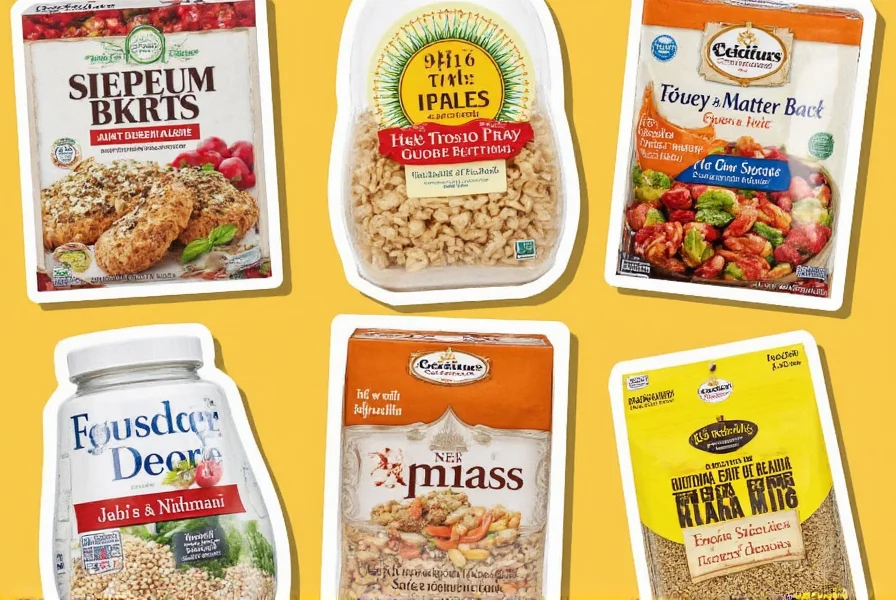
Why Sesame Seeds Matter
Sesame seeds contribute unique nutritional and textural properties to dishes. They contain 5g of protein and 4g of fiber per ounce, plus essential minerals like calcium and magnesium. Their delicate nutty flavor enhances both sweet and savory recipes, from bagels to stir-fries. However, when unavailable or unsuitable, these scientifically verified alternatives can deliver similar benefits while accommodating dietary restrictions.

Top 10 Alternatives to Sesame Seeds
Based on culinary research and nutritional analysis, these alternatives provide comparable texture, flavor, and health benefits:
- Flaxseeds: Rich in omega-3 fatty acids (2,350mg per tablespoon) and fiber. Best for baking where binding properties are needed. Toasted flaxseeds develop a nuttier flavor similar to sesame.
- Pumpkin Seeds (Pepitas): Contain 5g protein and 2mg iron per ounce. Ideal for salads, Asian dishes, and trail mixes. Their crunch matches sesame seeds perfectly when toasted.
- Chia Seeds: Absorb 10x their weight in water, creating gel-like texture. Perfect for puddings and as egg substitutes in vegan baking. High in calcium (177mg per ounce).
- Cashew Nuts: Creamy texture when crushed. Excellent for nut butters and savory sauces. Contains 5g protein per ounce and monounsaturated fats.
- Almonds: Higher vitamin E content than sesame seeds. Best for baked goods and as a topping. Soak and roast to enhance nuttiness.
- Walnuts: Rich in polyunsaturated fats (18g per ounce). Ideal for savory dishes like pesto and grain bowls. Toast to reduce bitterness.
- Poppy Seeds: Mild flavor with similar appearance. Traditional in bagels and muffins. Contain 1.5g fiber per tablespoon.
- Hemp Seeds: Complete protein source with all 9 essential amino acids. Great for smoothies and vegan cheese. Contains 10g protein per 3 tablespoons.
- Coconut Flakes: Tropical sweetness works best in desserts. High in fiber (5g per ounce) and medium-chain triglycerides.
- Crushed Oats: Neutral flavor for coatings and textures. Gluten-free option when using certified oats. Contains beta-glucan for heart health.
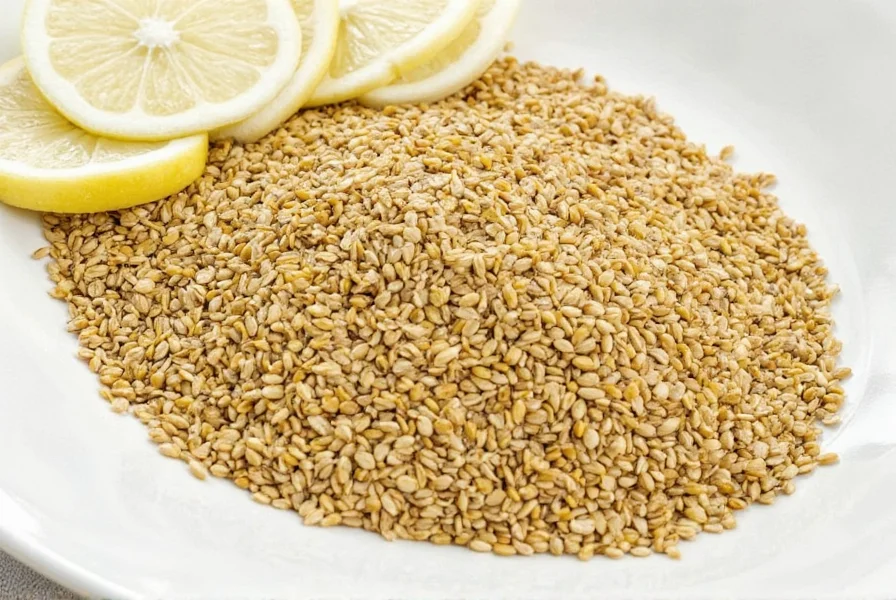
| Alternative | Flavor Profile | Best For | Use Cases | Target Audience |
|---|---|---|---|---|
| Flaxseeds | Nutty, earthy | Baking, smoothies | Gluten-free breads, oatmeal, energy bars | Vegan, health-conscious |
| Pumpkin Seeds | Crunchy, slightly sweet | Salads, snacks | Trail mixes, grain bowls, roasted vegetables | Snack lovers, plant-based eaters |
| Chia Seeds | Mild, nutty | Smoothies, desserts | Chia pudding, yogurt parfaits, sauces | Health-focused, gluten-free |
| Cashew Nuts | Creamy, mild | Savory, sweet | Stir-fries, nut butter, granola | Generalists, dessert lovers |
| Almonds | Sweet, aromatic | Both | Salads, cookies, meat dishes | Everyone |
| Walnuts | Earthy, strong | Savory | Grain bowls, stuffing, pesto | Earthier flavor lovers |
| Poppy Seeds | Mild, nutty | Sweet, savory | Bread, muffins, glazes | Bakers, traditionalists |
| Hemp Seeds | Nutty, rich | Healthy, creative | Salads, vegan cheese, smoothies | Plant-based, wellness-focused |
| Coconut Flakes | Tropical, sweet | Sweet | Baked goods, desserts, trail mixes | Dessert lovers, tropical food fans |
| Crushed Oats | Neutral, chewy | Coating, texture | Battered chicken, granola, crusted fish | Generalists, cooking enthusiasts |
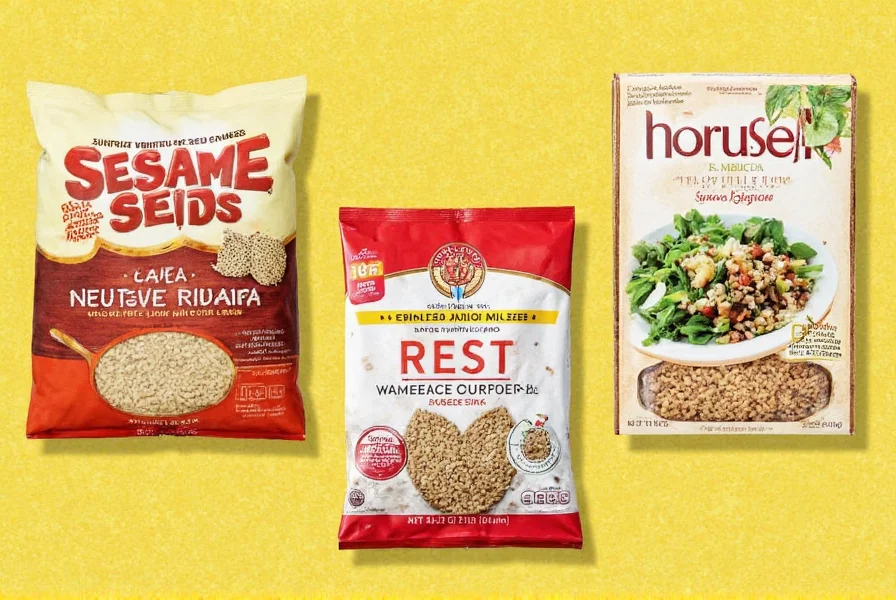
Frequently Asked Questions
What is the best overall substitute for sesame seeds?
Pumpkin seeds (pepitas) are the best overall substitute based on culinary research. They match sesame seeds' crunch, nutty flavor, and appearance most closely. For baking, flaxseeds provide superior binding properties and omega-3 benefits. Both alternatives work across sweet and savory applications without altering dish integrity.
Can I use any of these alternatives for making tahini?
Yes, but pumpkin seeds or sunflower seeds work best for tahini-like sauces. To make pumpkin seed tahini: blend 1 cup toasted pepitas with 3 tbsp olive oil, 1 tbsp lemon juice, and salt until smooth. This creates a creamy, nutty spread with similar consistency to traditional tahini. Sunflower seed butter is another excellent sesame-free option that maintains the characteristic texture.
Are there any nut-free alternatives for people with nut allergies?
Absolutely. Pumpkin seeds, sunflower seeds, flaxseeds, chia seeds, and hemp seeds are all nut-free and safe for allergies. Crushed oats also provide a neutral texture alternative. For sesame allergy sufferers, these alternatives maintain similar nutritional benefits without cross-contamination risks. Always check packaging for "nut-free" certification when purchasing seeds.
How do I toast substitute seeds to enhance their flavor?
Toast seeds in a dry skillet over medium-low heat for 2-5 minutes, stirring constantly. Pumpkin seeds take 3-4 minutes until golden, while smaller seeds like chia or flax need only 2-3 minutes. For maximum flavor: 1) Use a heavy-bottomed pan 2) Keep heat low to prevent burning 3) Remove immediately when fragrant 4) Cool completely before using. This process enhances nuttiness while preserving nutritional value.
Can I use these alternatives in sushi or Asian dishes that traditionally use sesame seeds?
Yes. For sushi rolls, use hulled white pumpkin seeds as they visually match sesame seeds. Toast them lightly for best texture. Black chia seeds work for black sesame applications but have different texture. In stir-fries, pumpkin seeds add crunch to vegetable dishes, while hemp seeds complement teriyaki sauces. Always toast Asian-style substitutes before use to maximize flavor compatibility.
Do any of these alternatives have similar nutritional benefits to sesame seeds?
Hemp seeds match sesame seeds in protein content (10g per 3 tbsp vs 5g per ounce) and provide complete amino acids. Flaxseeds exceed sesame seeds in omega-3s (2,350mg per tbsp vs negligible). Chia seeds offer comparable calcium (177mg per ounce vs 88mg in sesame) and higher fiber. All alternatives deliver healthy fats, minerals, and fiber, though specific nutrient profiles vary. For nutritional equivalence, prioritize hemp or flax seeds for protein and omega-3s.
How should I store these alternative seeds to maintain freshness?
Store seeds in airtight containers in cool, dark places. Oils-rich seeds like hemp, flax, and chia require refrigeration for 6-12 months shelf life. Nuts like almonds and walnuts should be frozen for optimal freshness. Always use opaque containers to block light exposure, which accelerates rancidity. For maximum nutrient retention, buy in small quantities and rotate stock every 3 months. Toasted seeds should be consumed within 2 weeks for peak flavor.
Can I substitute these alternatives cup-for-cup in recipes that call for sesame seeds?
For most applications, yes - use a 1:1 ratio. However, larger seeds like pumpkin or sunflower may need chopping for fine-textured dishes. When binding ingredients (like energy bars), chia or flax seeds require gelation: mix 1 tbsp seeds with 3 tbsp water, wait 5 minutes, then use. For visual similarity in sushi, use hulled pumpkin seeds instead of whole seeds. Always adjust for moisture content differences in wet recipes.
Conclusion
Sesame seeds are versatile, but numerous scientifically validated alternatives exist for every culinary need. Whether you're baking, cooking Asian cuisine, or managing dietary restrictions, these substitutes deliver comparable flavor, texture, and nutrition. For optimal results: 1) Toast seeds before use to enhance nuttiness 2) Match substitutes to your specific recipe requirements 3) Store properly to maintain freshness. Experiment confidently - the right alternative can elevate your dishes beyond sesame seeds' capabilities.
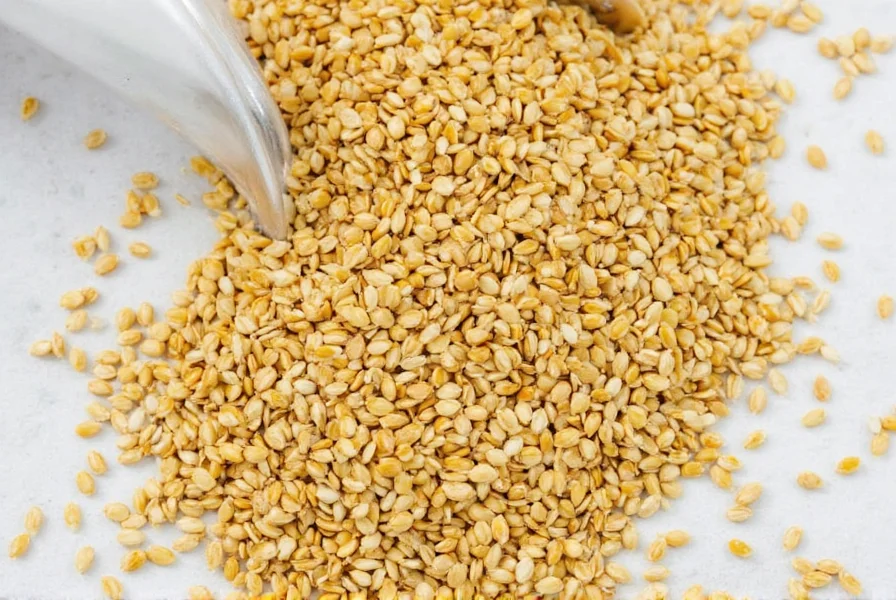

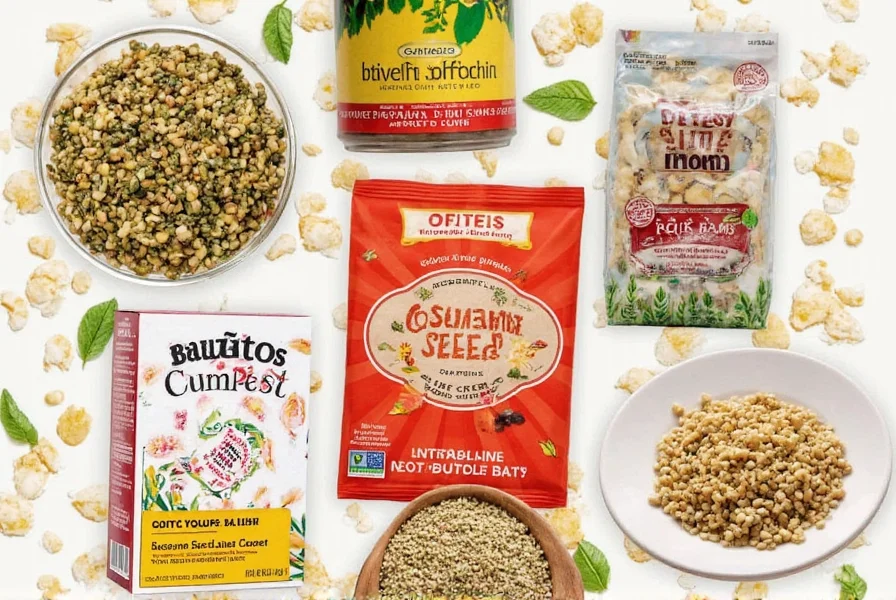









 浙公网安备
33010002000092号
浙公网安备
33010002000092号 浙B2-20120091-4
浙B2-20120091-4